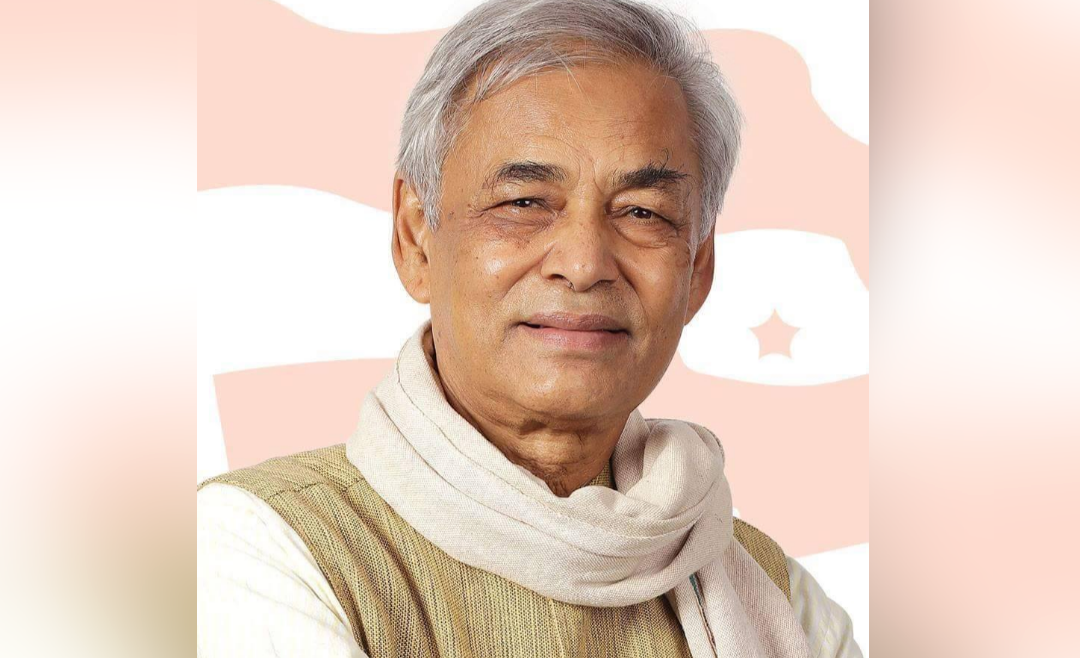Birth: 10 Oct 1947, Siraha
Death: 20 Aug 2022, Lalitpur
I met Pradip Giri in person in early 2020, at a protest against the government decision to slap 10 percent customs duty on imported books. We were holding a petition-signing event and had invited students, readers and scholars who considered books an important part of their lives. He was among the handful of prominent figures to show up at the program organized by a loose group of students. Very few youth political leaders were in attendance. But Giri, a Nepali Congress veteran widely hailed as a socialist thinker, was there.
To say we were honored by his presence would be an understatement. The intellectual leader was forthright and funny. Finding himself in the midst of smartphone-wielding, selfie-taking youths, he asked, with a smile on face, if we were organizing the event just as a social media stunt. He also wanted to know about our favorite books and authors.
Giri peppered us with questions about books and literature that day, and we tried, as best we could, to satisfy his curiosity. After listening to us, he suggested what books and authors we should read. He seemed pleased that the reading culture had not died in Nepal, and that the youths—not the scholars, writers, or civil society members—were leading the protest against the book tax.
When we informed Giri that the police had detained us twice for protesting. He advised us to keep protesting, no matter what. “To safeguard democracy, you have to keep up pressure on those in power,” he told us. “Your bottom line should be the fulfillment of your demand—don’t settle for anything less.” We were a fairly small group standing up against the powers that be. His vote of confidence gave us courage to persevere.
“Democracy is not just about the majority. Each voice must be heard,” Giri used to say on the parliament floor and at public gatherings. He championed the cause of minorities—and why he had decided to show up at our protest that day. He wanted competent young people to lead the country, and so he would visit youth-led campaigns to motivate them.
Within his own party, he was in favor of young leaders taking leadership. This made him an outlier among his party peers. Yes, Giri was a Congress leader but he always stood for the right cause, even if it meant going against his own party. A strong advocate of socialism, Giri was a strong supporter of non-violence, yet in his view, the decade-long Maosit movement was the base of ensuring the rights of Madhesis, Dalits and women.
When Nepal promulgated the new constitution in 2015, he defied the party whip and refused to endorse the charter, arguing that it did not address the concerns of Madhesi people. Nepali Congress did not punish him for the disobedience.
Born into a political family in Siraha district, Giri was introduced to politics in his late teens. He went to Jawaharlal Nehru University in India, where he made many friends who went on to become top politicians. He himself eschewed executive roles throughout his political career, for which he was applauded by one and all in Nepal, a country that has had more than enough power-hungry politicians.
During his student years in India, he was highly influenced by the socialist movement of Jayprakash Narayan and Ram Manohar Lohia. Giri was a highly learned man, whose interests ranged from politics to theology to philosophy. He was a politician, a public intellect, a thinker and a champion of the downtrodden. We are all poorer for his death.












